- Home
- Benefits of Ecotourism: Use Your Eco-Tourism Dollars to Help Animals
Benefits of Ecotourism: Use Your Ecotourism Dollars To Help Animals
 Photo by Monstera: https://www.pexels.com/photo/anonymous-person-with-magnifying-glass-over-world-map-of-coins-7412089/
Photo by Monstera: https://www.pexels.com/photo/anonymous-person-with-magnifying-glass-over-world-map-of-coins-7412089/The benefits of ecotourism are far-reaching, making it an impactful way to contribute to animal conservation, especially if you live in a city and feel unable to rescue a pet.
By participating in ecotourism, you help support the protection of endangered species and their habitats.
Your travel dollars, when spent in eco-friendly destinations such as national parks, wildlife reserves, and conservation areas, directly fund efforts to preserve wildlife and their ecosystems.
Additionally, this support provides economic incentives for local communities, motivating them to protect their natural resources and wildlife.
The benefits of ecotourism include fostering sustainable development, where both nature and people can thrive.
By choosing eco-tourism vacations, you also gain the opportunity to immerse yourself in nature, deepening your understanding of the importance of conservation while ensuring that the wildlife and environments you visit are preserved for future generations.
Ecotourism vs. Sustainable Tourism: Understanding the Key Differences
Sustainable Tourism: Travel With Minimal Impact
 Photo by Markus Spiske https://unsplash.com/photos/person-watering-plant-sFydXGrt5OA
Photo by Markus Spiske https://unsplash.com/photos/person-watering-plant-sFydXGrt5OASustainable tourism is a form of travel that focuses on minimizing the environmental impact while maximizing the positive effects on the local community and economy.
It encourages travelers to think about the broader consequences of their journey, considering factors like environmental preservation, social justice, and economic development.
This approach promotes a balanced relationship between tourism and the destination, ensuring that both the environment and local culture can thrive in the long term.
Sustainable tourism can take many forms, from the simplicity of a camping trip where you use public transportation or a bicycle, to more luxurious options such as sustainable resorts.
A sustainable resort, for example, integrates eco-friendly practices into its operations, offering a high-end experience that still prioritizes environmental care.
Features might include the use of recycled water for irrigation or plumbing, low-flow toilets to conserve water, energy-efficient lighting, and renewable energy sources like solar or wind power.
These resorts often encourage guests to refill water bottles to reduce plastic waste and use eco-friendly cleaning products that have a lower environmental impact.
By choosing sustainable travel options, you are directly contributing to the preservation of the natural environment and supporting the local communities that depend on tourism for their livelihoods.
The benefits of ecotourism go beyond just protecting wildlife and ecosystems; they also help create economic opportunities for people in these areas, ensuring that tourism remains a sustainable and viable industry in the future.
Sustainable tourism offers travelers the chance to explore beautiful, untouched landscapes while ensuring these places are protected for generations to come.
Benefits of Ecotourism: Travel to Support the Environment

Eco-tourism takes sustainability to a whole new level by not only prioritizing the conservation of the environment but also improving the lives of the host country’s residents.
One if the benefits of ecotourism is that it emphasizes the importance of responsible travel that benefits both the natural world and the communities that depend on it.
One of the core elements of eco-tourism is interpretation and education, which enables travelers to gain a deeper understanding of the places they visit, as well as the pressing environmental and social issues that may affect those regions.
This educational component fosters a more meaningful connection between the tourist and the destination, ultimately leading to greater awareness and responsibility.
The International Ecotourism Society plays a crucial role in inspiring consumers, communities, tourism companies, and marketers to promote environmental and cultural awareness.
Through its efforts, the ecotourism society encourages travelers to not only enjoy a positive experience for themselves but also to actively contribute to the well-being of the host communities.
This form of tourism generates financial benefits for conservation projects and supports the local economy, creating a win-win situation for both the environment and the people who rely on it.
By raising awareness about the political, social, and environmental issues in the host country, the benefits of ecotourism empower travelers to become advocates for change, ensuring that the beauty and diversity of these regions are preserved for future generations.
At its core, the benefits of ecotourism enhance the environment, preserve local cultures, and improve the local economy through sustainable practices.
It educates tourists about their role in these efforts, helping them spread awareness of conservation issues and encouraging responsible behaviors both during their travels and at home.
Through these combined efforts, ecotourism contributes to a more sustainable and equitable world, where both the environment and the people who inhabit it can thrive.
Pros and Cons of Eco-tourism
Benefits of Ecotourism: Awareness and Support
 Photo by Yusron El Jihan: https://www.pexels.com/photo/man-in-gray-crew-neck-t-shirt-standing-beside-woman-in-yellow-and-blue-floral-dress-7569596/
Photo by Yusron El Jihan: https://www.pexels.com/photo/man-in-gray-crew-neck-t-shirt-standing-beside-woman-in-yellow-and-blue-floral-dress-7569596/Spreading awareness of environmental issues is always a powerful and positive endeavor, and eco-tourism provides an exceptional platform for doing so.
One of the greatest benefits of eco-tourism is that it allows tourists to develop a deeper appreciation for wildlife and the natural habitats that sustain them.
By immersing themselves in these pristine environments, travelers come to understand the delicate balance required to maintain these ecosystems.
As a result, they are more likely to return home with a heightened sense of responsibility and a desire to spread the word about the importance of conservation.
This ripple effect can lead to greater awareness of environmental issues and inspire others to take action, whether through supporting sustainable practices in their daily lives or becoming more actively involved in conservation efforts in their own countries or the host nation, thereby spreading the benefits of ecotourism to the travelers home country and beyond.
Eco-tourism can also have a profound economic impact on the surrounding region, benefiting both the local community and the environment.
It’s designed to be a rewarding experience for everyone involved, from the travelers themselves to the local people and the ecosystems they visit.
For tourists, one of the benefits of ecotourism is that it offers the opportunity to connect with nature in a meaningful way, often providing a stress-relieving escape from their daily routines.
The experience can foster a sense of accomplishment and public-spiritedness, encouraging them to become ambassadors for environmental and cultural preservation.
This sense of personal fulfillment not only benefits their mental and emotional well-being but also promotes a healthier lifestyle through the act of connecting with nature.
The influx of eco-tourism dollars can have a transformative effect on local economies. Governments, nonprofits, and businesses in the area recognize the value of eco-tourism and the financial resources it brings.
This recognition leads to increased support for conservation and sustainability initiatives, as local stakeholders see the direct link between preserving the environment and the economic opportunities that ecotourism provides.
As a result, one of the benefits of ecotourism is that the community becomes more invested in protecting its natural resources, ensuring that future generations can continue to enjoy the beauty of the region.
Another one of the benefits of ecotourism is that a well-planned, sustainable eco-tourism trip can significantly reduce the carbon footprint associated with leisure activities.
Eco-tourism encourages responsible travel practices, such as minimizing waste, conserving water, and supporting eco-friendly accommodations.
These efforts help mitigate the environmental impact of tourism while actively contributing to the improvement of the ecosystems being visited.
In essence, eco-tourism is not only a way for travelers to enjoy nature but also a means of ensuring that nature is preserved for future generations.
The benefits of eco-tourism go far beyond the immediate enjoyment of the traveler; they create lasting positive effects for the environment, the local people, and the global community as a whole.
Cons: Too Much of a Good Thing
 Photo by Tommaso Pecchioli https://unsplash.com/photos/person-standing-beside-the-luggage-bags-03nt4WmL1Kk
Photo by Tommaso Pecchioli https://unsplash.com/photos/person-standing-beside-the-luggage-bags-03nt4WmL1KkThere are so many benefits of ecotourism, but are there drawbacks as well?
I’m sure we’ve all heard about the devastating effects of over-tourism in certain regions.
When too many tourists flock to a destination, it can place immense pressure on the local environment, infrastructure, and community.
The dramatic increase in human presence can lead to significant environmental degradation, including the depletion of vital resources such as water, and overwhelming waste management systems.
In some cases, local communities may feel compelled to clear forests or other natural areas to make space for hotels, roads, and other tourist facilities.
This can result in the destruction of fragile ecosystems, pushing many species toward the brink of extinction and causing irreversible harm to biodiversity.
The negative impacts of over-tourism extend beyond the environment.
In an effort to cater to the influx of visitors, local people may feel pressured to alter their way of life, sometimes to the point of compromising their culture and traditions.
To make the area more attractive or "tourist-friendly," there may be a shift toward adopting practices and amenities that mirror what visitors expect, such as Westernized conveniences or commercialized versions of local customs.
This can erode the authenticity of the culture, making it feel more like a performance for outsiders rather than a genuine expression of local life.
Economically, over-tourism can have mixed effects.
While tourism can generate revenue, an over-reliance on this single industry can lead to instability.
When the local economy becomes too dependent on tourism, it may begin to neglect other forms of economic development, such as agriculture or industry.
This dependency can make the community vulnerable to shifts in the tourism market, like seasonal fluctuations or global crises that affect travel.
In the long term, over-tourism can harm both the environment and the local economy, creating a cycle that’s difficult to break
Plan Your Vacation Wisely: Be Mindful of Your Impact
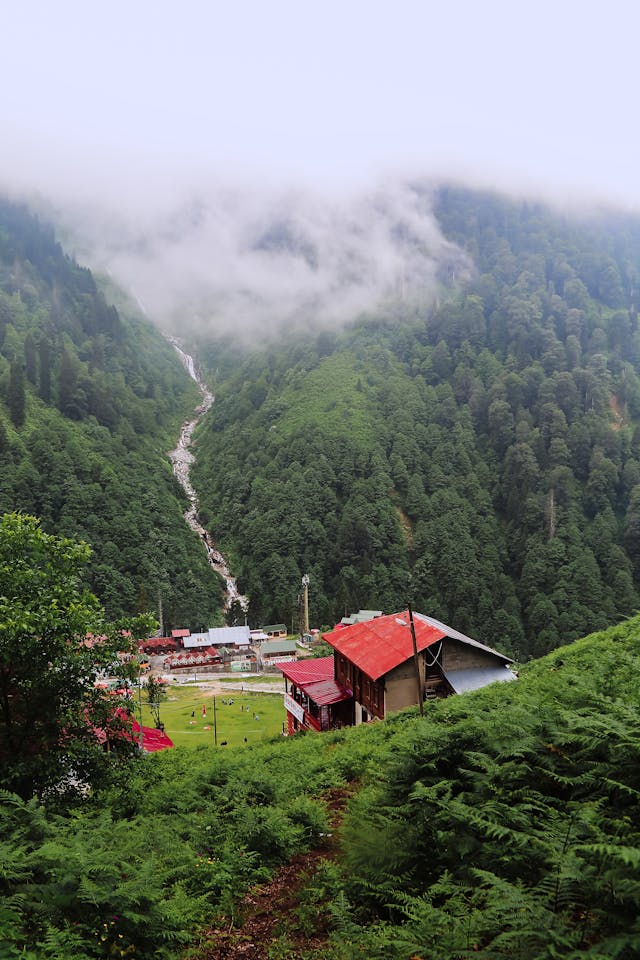 Photo by Yunus Tuğ: https://www.pexels.com/photo/tranquil-mountain-village-with-misty-forest-landscape-29821053/
Photo by Yunus Tuğ: https://www.pexels.com/photo/tranquil-mountain-village-with-misty-forest-landscape-29821053/As an eco-tourist, it’s essential to be mindful of the impact your travels have on the host country and its environment.
One of the core benefits of eco-tourism is that it encourages travelers to make thoughtful decisions that lead to long-term positive effects on both the local community and the wildlife that call the region home.
The goal is not just to visit a destination but to ensure that your presence contributes to its preservation and supports sustainable practices.
This means being conscious of your footprint, whether it’s minimizing waste, conserving resources, or respecting the local culture and wildlife.
One way to achieve this is by choosing to visit smaller, lesser-known destinations, away from the crowded hotspots that suffer from the pressures of over-tourism.
By opting for these off-the-beaten-path locations, you help alleviate the strain on more popular tourist areas while also encouraging responsible tourism in regions that may rely on it for their economic survival.
These areas often have fragile ecosystems, and your visit can make a real difference in raising awareness about their need for protection and conservation.
Learning about local conservation efforts is one of the other vital benefits of ecotourism.
When you travel with an eco-conscious mindset, you gain the opportunity to educate yourself about the environmental challenges faced by the host country.
Many ecotourism destinations offer tours, workshops, and interactions with local conservationists, giving you a deeper understanding of the ecosystems and wildlife you are supporting.
This education is invaluable because it doesn’t end when you leave.
By taking this knowledge home, you can share what you’ve learned with others, raising awareness about the importance of protecting our planet and encouraging others to travel responsibly as well.
The benefits of ecotourism extend far beyond the journey itself, as it sparks a ripple effect of awareness and action that can spread to friends, family, and even entire communities.
Finally, eco-tourism is about experiencing the wonder and beauty of our planet while actively contributing to its preservation.
By choosing eco-friendly activities, staying at sustainable accommodations, and supporting local conservation efforts, you are helping to ensure that the places you love to visit remain intact for future generations.
Eco-tourism is not just about being a passive observer; it’s about becoming an advocate for the planet and a steward of its natural resources.
When done right, your travel can have a lasting, positive impact, making the world a better place for both people and wildlife alike.
Eco-Tourism Ideas
 Image by Pexels from Pixabay
Image by Pexels from PixabayThere are countless ways you can incorporate eco-tourism principles into your vacation, ensuring that your travels align with values of conservation, education, and making a positive impact on the environment.
One of the most accessible and rewarding approaches is to embrace outdoor activities that allow you to connect with nature while minimizing your environmental footprint.
Something as simple as a camping holiday or cycling through national parks can provide a unique and enriching experience, all while supporting conservation efforts and fostering a deeper appreciation for wildlife.
These activities not only allow you to witness the beauty of the natural world but also help you learn about the ecosystems and species that depend on it.
For instance, many national parks offer bike rental services, giving you the opportunity to explore the park on two wheels instead of relying on motorized vehicles.
Cycling through scenic landscapes lets you get up close to wildlife and immerse yourself in the natural environment in a way that's simply impossible from a car or bus.
I personally had the chance to do this at Acadia National Park in Maine, USA, and it was an unforgettable experience.
Riding an electric bike through the park allowed me to cover more ground without disturbing the serenity of the surroundings, all while having a front-row seat to the diverse ecosystems that thrive there.
The ability to move quietly and at a more leisurely pace provided me with the rare opportunity to observe wildlife, from birds to deer, in their natural habitat, something that would be much harder to do from a vehicle.
In addition to cycling, eco-tourism offers numerous other activities that bring you closer to nature while following sustainable practices.
Kayaking, hiking, and snorkeling are all excellent ways to explore a destination from a different perspective and experience parts of it you would never encounter from the road.
Kayaking, for example, allows you to glide silently over water, disturbing the ecosystem as little as possible, while gaining access to remote areas that are otherwise unreachable.
Hiking through pristine forests or mountain trails opens up opportunities to learn about local flora and fauna, while also offering the satisfaction of knowing that you are contributing to the protection of these areas by supporting eco-conscious tourism.
Snorkeling, meanwhile, provides a rare window into underwater ecosystems, allowing you to witness marine life up close and personally while supporting marine conservation initiatives.
These activities not only enrich your vacation but also embody the core benefits of eco-tourism.
They help foster environmental awareness, contribute to the local economy, and promote sustainable practices in travel.
By choosing eco-friendly experiences like these, you’re helping to protect the very natural wonders you come to admire, ensuring they remain intact for future generations.
Whether you're cycling through national parks, kayaking along pristine coastlines, or hiking in untouched wilderness, each activity provides a deeper connection to the natural world and reinforces the idea that tourism, when done responsibly, can be a powerful tool for conservation and education.
Costa Rica: Diversity of Flora and Fauna
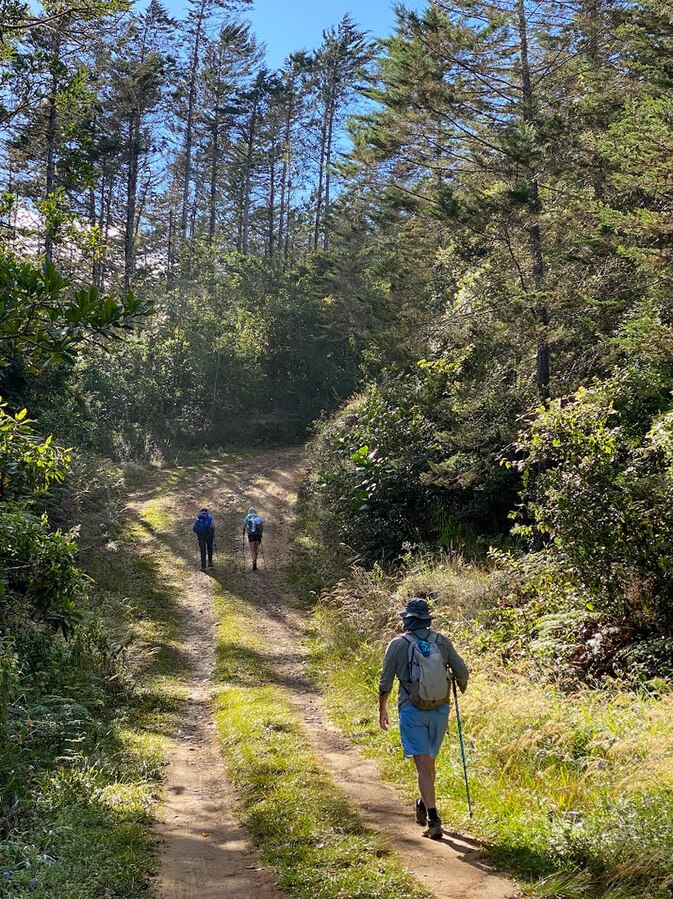 https://commons.wikimedia.org/wiki/File:EL_Camino_de_Costa_Rica_Hike.jpg
https://commons.wikimedia.org/wiki/File:EL_Camino_de_Costa_Rica_Hike.jpgCosta Rica is a shining example of a country that truly understands and embraces the principles of eco-tourism.
With its commitment to conservation and sustainable practices, Costa Rica has become one of the leading destinations for eco-conscious travelers.
The country is home to an abundance of national parks, wildlife reserves, and protected lands, making it a paradise for nature lovers.
As one of the most biodiverse places on the planet, Costa Rica is fiercely dedicated to preserving its natural treasures for future generations.
One of the country’s key environmental successes is the ban on hunting, which has allowed wildlife to thrive in their natural habitats.
This dedication to wildlife protection means that travelers can witness an extraordinary variety of animals up close, from colorful tropical birds and playful monkeys to endangered species like the jaguar and sea turtles.
Costa Rica's commitment to conservation extends to its rich ecosystems, which range from lush rainforests and misty cloud forests to pristine beaches, active volcanoes, and towering mountain ranges.
These diverse landscapes offer a wealth of opportunities for eco-tourists to explore and immerse themselves in nature.
For an unforgettable experience, you can take a walk above the rainforest canopy on the suspended walkways at the Monteverde Cloud Forest Biological Reserve.
This unique perspective allows you to observe the rainforest from a whole new angle, giving you the chance to spot birds, insects, and plant life that are often hidden from view at ground level. It's a truly magical experience that highlights the importance of preserving these fragile ecosystems.
In addition to the natural wonders, Costa Rica also offers eco-hotels that are designed to minimize the environmental impact of your stay.
These eco-friendly accommodations focus on sustainable practices such as using renewable energy, recycling water, and reducing waste, all while providing a comfortable and immersive experience for guests.
Staying at an eco-hotel not only supports sustainable tourism but also helps to reduce the carbon footprint of your vacation.
Costa Rica’s dedication to eco-tourism is an inspiring model for the rest of the world.
Whether you’re hiking through its pristine national parks, relaxing on its beautiful beaches, or observing its diverse wildlife, the benefits of eco-tourism in Costa Rica are clear: you get to experience the incredible beauty of the natural world while contributing to its preservation.
With its rich biodiversity and commitment to sustainability, Costa Rica offers an eco-tourism experience that is both educational and impactful, making it the perfect destination for those looking to make a positive difference while exploring one of the most stunning places on Earth.
Iceland: Fire, Ice, and Natural Wonder
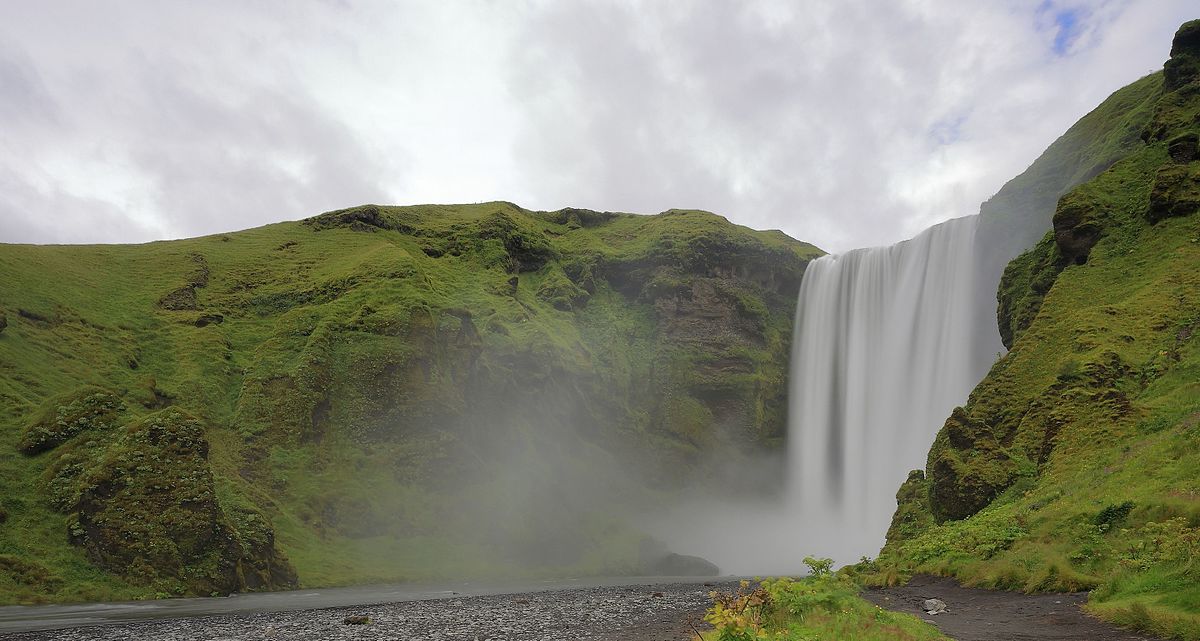 https://commons.wikimedia.org/wiki/File:Sk%C3%B3gafoss_July_2014.JPG
https://commons.wikimedia.org/wiki/File:Sk%C3%B3gafoss_July_2014.JPGIceland, often referred to as the "land of fire and ice," is a breathtaking destination where the forces of nature collide in spectacular fashion.
This island nation is home to glaciers, volcanoes, cascading waterfalls, and rejuvenating natural hot springs, each contributing to its unique and otherworldly landscape. Iceland's volcanic activity and dramatic scenery make it one of the most intriguing places on Earth, offering travelers the chance to witness natural wonders that can’t be found anywhere else in the world.
From the ethereal glow of the Northern Lights to the steaming geysers and geothermal pools, Iceland’s landscapes seem to exist in a realm of their own.
One of the most incredible experiences in Iceland is the opportunity to watch whales and puffins in their natural habitats.
Iceland’s coastal waters are prime locations for whale watching, where visitors can spot majestic humpback whales, minke whales, and even orcas as they breach and dive through the waves.
The island is also famous for its puffin colonies, particularly during the summer months when these charming seabirds flock to the cliffs, offering an unforgettable wildlife encounter.
For a truly authentic and immersive experience, Iceland offers a network of farms that welcome travelers into their homes.
Staying on a working farm allows you to connect with local Icelanders and gain a deeper understanding of life in this remote, rugged country.
Visitors can help with farm tasks, learn about Iceland’s agricultural practices, and even supplement the farmers' income by staying on the land.
This exchange fosters meaningful connections and supports the local economy in a sustainable way, making it a perfect example of eco-tourism that benefits both the traveler and the community.
Iceland is also renowned for its commitment to sustainable energy, harnessing its abundant geothermal and hydroelectric power to fuel much of the country’s needs.
The use of renewable energy is a point of pride for Icelanders, and it serves as an example of how a nation can rely on clean, natural resources to power its economy and reduce its carbon footprint.
Iceland’s efforts to protect and preserve its stunning landscapes, along with its sustainable approach to energy, make it a beacon of eco-tourism and environmental stewardship.
With its dramatic landscapes, incredible wildlife, and commitment to sustainability, Iceland offers an experience like no other.
Whether you're hiking on glaciers, soaking in geothermal hot springs, or exploring its fascinating volcanic terrain, Iceland provides travelers with an opportunity to witness nature’s power firsthand while contributing to the conservation of its extraordinary environment.
The benefits of eco-tourism are evident here, as your visit helps support local communities, promotes sustainable practices, and ensures that Iceland’s natural wonders will continue to captivate future generations.
Kenya: Safaris, Jungle Animals, and Water Exploration
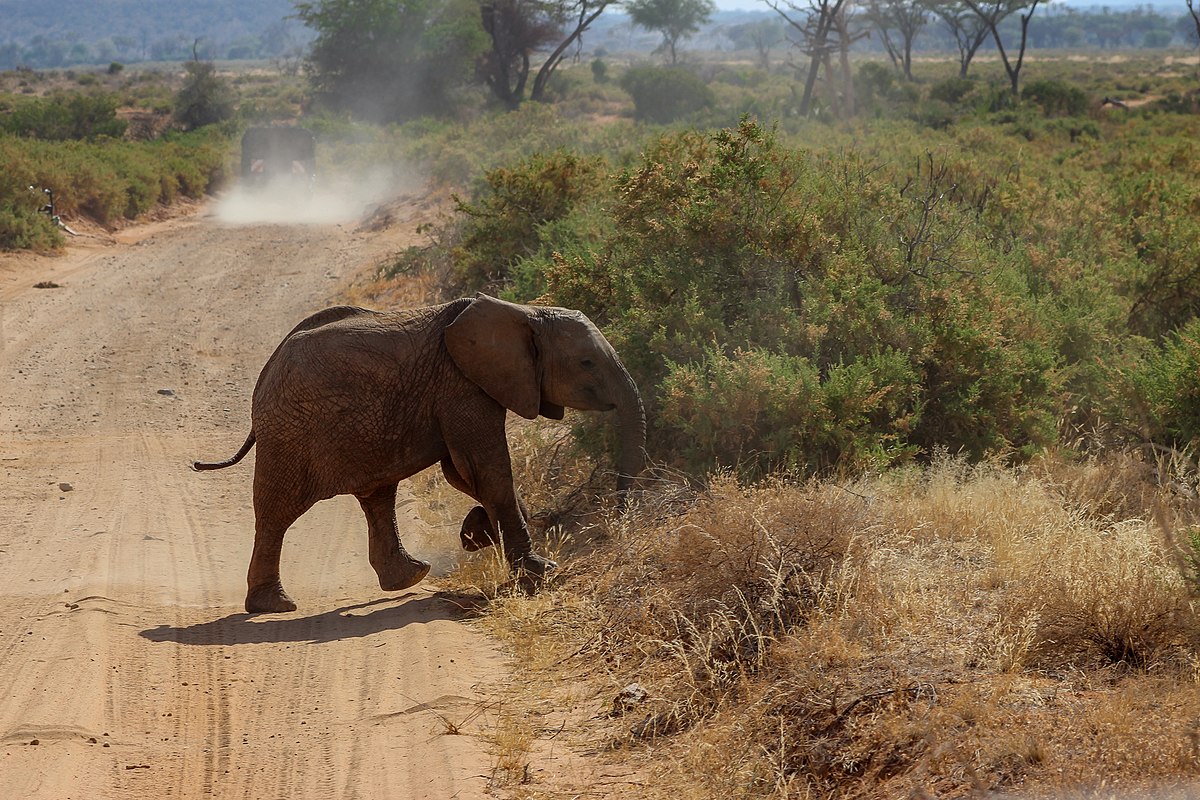 https://commons.wikimedia.org/wiki/File:Kenya,_Safari_(45391681804).jpg
https://commons.wikimedia.org/wiki/File:Kenya,_Safari_(45391681804).jpgKenya is a country that offers a wealth of ecotourism activities, providing travelers with a chance to explore its incredible natural beauty while promoting conservation and sustainability.
With its diverse landscapes, Kenya is home to 24 national parks, 15 national reserves, and 16 marine parks, offering an abundance of opportunities for eco-tourism enthusiasts.
Whether you're interested in thrilling game-viewing safaris, bird watching, snorkeling along the stunning east coast, horseback riding through scenic landscapes, hiking in the rugged hills, or even soaring above the savannah in a hot air balloon, there’s no shortage of ways to immerse yourself in the wonders of Kenya’s wildlife and pristine ecosystems.
The country is renowned for its incredible biodiversity, where you can observe some of the world’s most iconic animals in their natural habitats.
From majestic elephants and elusive rhinos to powerful leopards, regal lions, and countless bird species, Kenya is a paradise for wildlife lovers.
Each national park and reserve is home to unique flora and fauna, providing a rich tapestry of ecosystems ranging from savannahs and woodlands to wetlands and coastal waters.
When planning your safari, it’s important to choose sustainable and eco-friendly tour operators that prioritize conservation and responsible tourism practices.
Sustainable safaris not only ensure minimal disruption to the animals and their habitats but also contribute directly to local conservation efforts, helping protect these incredible species for future generations.
Beyond the typical tourist activities, Kenya also offers volunteer opportunities that allow you to directly contribute to the well-being of the country’s communities and environment.
Volunteers can engage in a variety of projects, such as working on farms, helping local organizations with social media and communications, or contributing to conservation initiatives.
These opportunities provide an enriching experience where you can learn from the people and the land, all while making a tangible impact on the communities you visit.
By volunteering, you not only support the local economy but also become part of the solution in preserving Kenya’s extraordinary wildlife and habitats.
Kenya’s commitment to ecotourism, sustainable travel, and conservation ensures that your visit can have a positive impact, supporting the preservation of its natural resources while benefiting local communities.
Whether you're exploring the wilds of the Masai Mara, snorkeling in the coral reefs of Watamu, or volunteering to help with environmental projects, the benefits of ecotourism are evident at every turn.
Your journey through Kenya is not just about adventure; it’s about contributing to the sustainability of one of the most biodiverse countries on the planet, ensuring that its remarkable landscapes and wildlife thrive for generations to come.
Other Areas Throughout the Globe
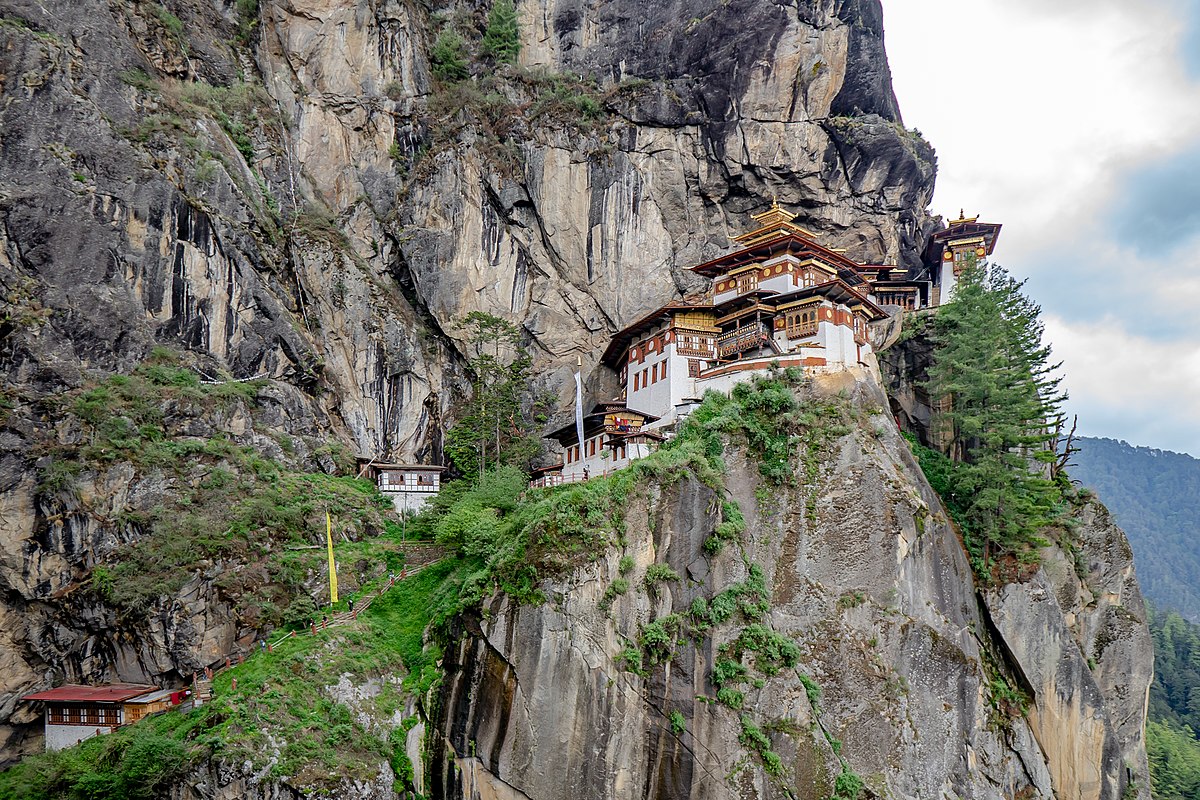 https://commons.wikimedia.org/wiki/File:Paro,_Bhutan_(49698813546).jpg
https://commons.wikimedia.org/wiki/File:Paro,_Bhutan_(49698813546).jpgThe Galapagos Islands and the country of Bhutan are prime examples of destinations that have taken significant steps to protect their unique ecosystems through conservation fees.
Both places understand the importance of sustainable tourism and recognize the need for visitors to contribute to preserving their natural wonders.
Bhutan, in particular, stands out as a carbon-negative country, meaning it absorbs more carbon than it emits, and has implemented strict measures to ensure that its environmental impact remains minimal.
By charging tourists a conservation fee, Bhutan ensures that the funds go directly toward maintaining its pristine environment, promoting sustainability, and supporting the local communities.
Similarly, the island nation of Palau has introduced a remarkable initiative called Ol’au Palau, which incentivizes tourists to engage in sustainable practices.
Through this program, visitors can earn rewards by participating in eco-friendly activities such as reducing waste, conserving water, and supporting conservation projects.
This initiative not only raises awareness about sustainability but also encourages travelers to be more mindful of their actions and make a positive impact during their stay.
Slovenia, another country with a strong commitment to conservation, has designated over half of its land as protected areas.
This effort to preserve natural habitats and biodiversity provides ample opportunities for eco-tourism, allowing travelers to experience the country’s stunning landscapes while supporting efforts to maintain its environmental integrity.
Slovenia's dedication to protecting its forests, wetlands, and other ecosystems makes it a prime destination for nature lovers and eco-conscious tourists.
No matter where you travel, you can find eco-tourism opportunities in nearly every country around the globe.
However, it’s essential to be vigilant when choosing eco-tourism activities, as not all experiences that claim to be "eco-friendly" genuinely adhere to the principles of sustainability.
Some companies may engage in "greenwashing," presenting traditional tourist activities as sustainable when, in reality, they may not contribute to conservation or benefit the surrounding areas.
For example, activities like swimming with dolphins or certain safari experiences may sound appealing but could involve practices that are harmful to wildlife or disrupt delicate ecosystems.
It’s crucial to research thoroughly, ensuring that the companies you choose operate in alignment with eco-tourism principles, prioritizing the protection of wildlife, local cultures, and the environment.
As a responsible traveler, always make sure that your activities adhere to sustainable practices, and be cautious when engaging in experiences that involve wildlife.
Look for reputable organizations that are transparent about their conservation efforts and that support local communities and ecosystems.
By being mindful of your travel choices, you can help ensure that your visit has a positive impact, contributing to the conservation of the places you visit and promoting sustainable tourism worldwide.
Ecotourism Tips
- Be mindful whenever you vacation
- Find places that aren’t so popular.
- Stay with local people, frequent local businesses and eat local food
- Walk, bike, or use public transportation whenever possible.
- Show respect for the land and animals. Take pictures instead of objects as souvenirs. Be careful with the animals and don’t touch them. Take away all of your trash.
- Visit national parks and preservation areas.
- Search for local educational opportunities and participate in the local culture.






New! Comments
Have your say about what you just read! Leave me a comment in the box below.